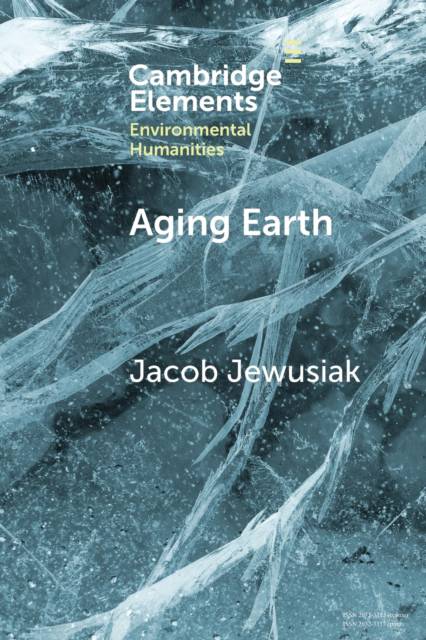
- Afhalen na 1 uur in een winkel met voorraad
- Gratis thuislevering in België vanaf € 30
- Ruim aanbod met 7 miljoen producten
- Afhalen na 1 uur in een winkel met voorraad
- Gratis thuislevering in België vanaf € 30
- Ruim aanbod met 7 miljoen producten
Zoeken
Omschrijving
Alarmist demography often situates older people as natural disasters: images of the 'gray flood' and 'silver tsunami' imbue senescence with the destructive force of climatic proportions. This Element focuses on the demographic dread arising from the relative shift in younger and older populations: not of a world lacking children, but of one catastrophized by the overabundance of the old and aging. Drawing on examples of science fictional sterility dystopias, Aging Earth challenges the privilege of youth in ecocritical thought and practice, especially the heteronormative urgency to address climate change for the sake of children and future generations. By decoupling the figurative connection between futurity and children, senescent environmentalism attunes itself to the contingency of non-linear and non-teleological futures: drawing together the delicacy of ecosystems on the brink with the structural precarity of older people, queers, and people of color.
Specificaties
Betrokkenen
- Auteur(s):
- Uitgeverij:
Inhoud
- Aantal bladzijden:
- 76
- Taal:
- Engels
- Reeks:
Eigenschappen
- Productcode (EAN):
- 9781009318365
- Verschijningsdatum:
- 3/08/2023
- Uitvoering:
- Paperback
- Formaat:
- Trade paperback (VS)
- Afmetingen:
- 152 mm x 229 mm
- Gewicht:
- 113 g

Alleen bij Standaard Boekhandel
+ 66 punten op je klantenkaart van Standaard Boekhandel
Beoordelingen
We publiceren alleen reviews die voldoen aan de voorwaarden voor reviews. Bekijk onze voorwaarden voor reviews.








